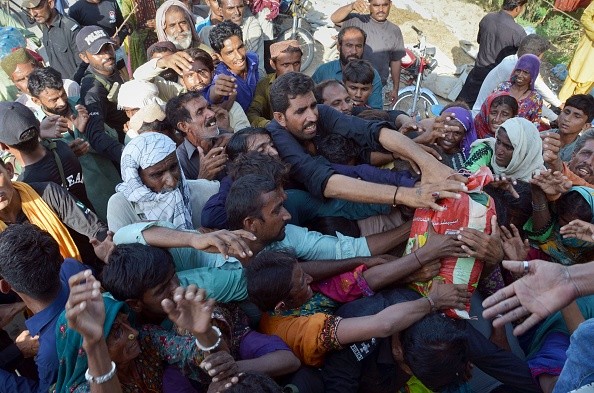The flooding linked to the climate in Pakistan has displaced millions of families in Pakistan. The World Health Organization (WHO) raised concerns about a potential wave of disease in flood-hit areas.
Pakistan has suffered from catastrophic flooding, which experts linked to climate change. Reports revealed that the flooding inundated 33 million there. Major roads and bridges were also damaged.
As floodwaters started to recede, displaced families living in makeshift camps or tents may be at health risk of dengue fever, malaria, dirty and stagnant waters, and possible breeding areas for mosquitos, according to Associated Press.
Catastrophic floods in #Pakistan 🇵🇰 have claimed the lives of at least 528 children. Each and every one of these deaths is a tragedy that could have been averted. Without a massive increase in support, many more will lose their lives, says @AbdullahAFadilhttps://t.co/QbyhzQdGKg
— UNICEF Pakistan (@UNICEF_Pakistan) September 16, 2022
In a statement, United Nations Secretary-General António Guterres reiterated the importance of climate action at the U.N. General Assembly press conference.
Guterres urged countries to help poorer nations. He emphasized the devastating effects of climate change on the most impoverished nations. He mentioned Pakistan's massive flooding that damaged infrastructure, displaced families, and caused 1,300 deaths
He added that the situation in Pakistan shows the inadequacy of the global response to the climate crisis.
In a tweet, the United Nations International Children's Emergency Fund (UNICEF) said that more than 500 children died from the devastating floods that hit the country.
During a visit, UNICEF representative Abdullah Fadil shared that an estimated 16 million children are in Sindh's flood-hit area. He said UNICEF would support children and families from potential health risks, according to AP.
Flood-affected areas

WHO's director-general, Tedros Adhanom Ghebreyesus, said in a statement that he is concerned about the potential for a second disaster in Pakistan. It means a wave of diseases in which the latest catastrophe puts millions vulnerable.
AP reported that WHO director-general stressed that the water supply is disrupted, putting Pakistan people to drink unsafe water.
He added that quick action is vital in protecting the health of affected communities by delivering essential services, which can reduce the impact of a potential crisis.
About 2,000 health facilities are partially or fully damaged in Pakistan, urging health professionals to respond and save more lives, Adhanom Ghebreyesus said.
According to Associated Press, in the district of Dera Allah Yar in Baluchistan, 70% were positive for malaria of the 300 people tested daily. There are also reports of skin infections and typhoid fever.
The same report also showed a challenging state of doctors in the flood-hit areas.
More than 2,000 patients come daily for treatment. Part of the initiative is they provide a month-long supply of soaps, water-purification tablets, and another hygienic kit, according to Khalid Mushtaq, heading a team of doctors from the Alkhidmat Foundation and the Pakistan Islamic Medical Association
The U.N. Secretary-General urged world leaders to commit to emissions reductions.
Furthermore, Pakistani Prime Minister Shahbaz Sharif appealed for help by donating food and blankets to affected families.
According to BBC report, the massive flooding in Pakistan serves as a wake-up call to tackle and threat of climate change.
In an interview with BBC News, climate impact scientist Fahad Saeed explained that the scale of flooding that hit Pakistan was so high with extreme rain, even if the robust defenses would struggle.
Related Article: Experts Say Marine Heat Waves Pose a 'Very Big Concern'
For more similar, don't forget to follow Nature World News.
© 2026 NatureWorldNews.com All rights reserved. Do not reproduce without permission.





